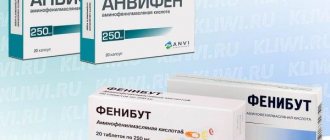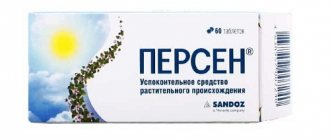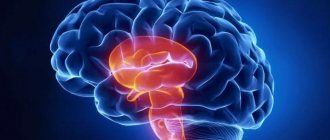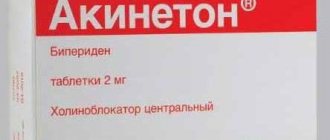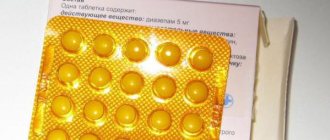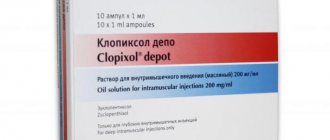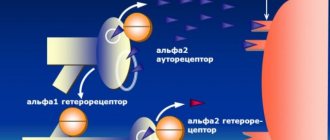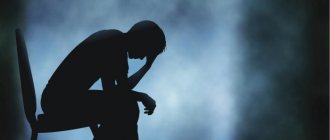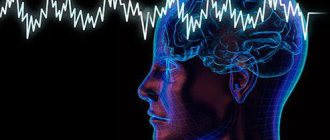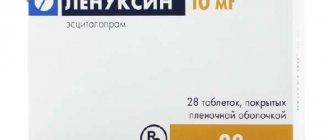Today, the prescription of sedatives has become widespread in the medical practice of many doctors of different specialties. One of the most common medicines is Persen. However, not everyone can be prescribed it for a number of specific reasons (high cost of the medication, its intolerance). That is why many people ask the question: what can replace Persen, and what analogues of this drug are presented on the modern pharmaceutical market.
Characteristics of Novopassit
Novo-Passit consists of extracts of vegetative organs (leaves, flowers, rhizomes) of plants such as:
- valerian - relaxing, sedative;
- St. John's wort - has choleretic, wound-healing, antibacterial and antirheumatic properties;
- lemon balm - has antiviral, antispasmodic, antimicrobial and antihistamine effects;
- passionflower - the plant is capable of suppressing the transmission of nerve impulses;
- elderberry - has bactericidal, astringent, diuretic and anti-inflammatory properties;
- hops - cleanses the blood, normalizes metabolic processes, has tanning and analgesic properties;
- hawthorn - improves oxygen access to the heart muscle, strengthens capillaries.
In addition to the listed herbs, the composition also contains the active substance guaifenesin (synthesized chemically from an extract of the resin of the guaiac tree), which plays the role of a drug for colds. Guaifenesin helps cleanse the bronchi and thins sticky mucus during coughs and runny noses. The ratio of components depends on the form of the medicine:
- tablets (produced in 10, 20, 30, 40 pieces in a blister);
- solution (produced in 100 or 200 ml vials).
The solid form includes 157.5 mg of dry plant material and 200 mg of guaifenesin, as well as auxiliary ingredients:
- magnesium stearate;
- silica;
- microcrystalline cellulose (MCC);
- glycerol;
- lactose.
Novopassit contains the active substance guaifenesin, which plays the role of a drug for colds.
5 ml of medicinal syrup contains 387.5 mg of medicinal herbal extract and 200 mg of guaifenesin, including additional ingredients:
- cyclamate and sodium benzoate;
- sodium citrate dihydrate;
- xanthan gum;
- saccharin;
- 96% ethanol;
- flavoring (orange);
- maltodextrin;
- propylene glycol;
- invert sugar syrup;
- purified water.
Take 1 tablet or 5 ml of syrup 3 times a day before meals. The time interval between taking the next dose is 4 hours or more. In individual cases, the volume of the drug taken can be adjusted (increased or decreased) as prescribed by the doctor. An overdose of Novo-Passit can provoke the following side symptoms:
- nausea and vomiting;
- heartburn;
- allergies;
- diarrhea;
- lethargy and drowsiness;
- muscle weakness.
Sleep disorders
The cause of insomnia can be acute and chronic pain, various somatic, mental and other diseases (secondary insomnia). And yet, more often than not, sleep disorders occur in the absence of any pathology (primary insomnia).
The source of primary insomnia is excessive psycho-emotional stress.
They lead to the development of a hyperactive state of the nervous system, which, even at night, is supported by obsessive thoughts fixated on the cause of stress, and is accompanied by an increase in the level of wakefulness and sensitivity to external stimuli. Over time, the main theme of these obsessive thoughts and a factor in insomnia can become the fear of not falling asleep itself.
Primary sleep disorders can manifest in three forms:
- difficulty falling asleep;
- early awakening, inability to fall asleep again;
- superficial, restless sleep with frequent awakenings during the night, a feeling of dissatisfaction with sleep even after a long duration.
RX zone
In case of severe sleep disorders, the leading role in their drug treatment is played by prescription sleeping pills of different groups, prescribed exclusively by a doctor.
Let us recall that a significant proportion of these drugs are subject to quantitative registration and are dispensed strictly according to prescription form No. 148/u (the bulk of benzodiazepines, Z-drugs, barbiturates).
Since only a narrow circle of pharmacy organizations have the right to work with them, we will not consider them in this article, focusing on “regular” Rx drugs (prescription form No. 107/y).
Benzodiazepines
Purpose of use: facilitating falling asleep, increasing sleep duration, reducing night awakenings in severe insomnia.
Principle of action: indiscriminately activate benzodiazepine receptors in the brain stem - increase the sensitivity of neuronal receptors to GABA (the main inhibitory mediator) - stimulate the inhibitory effect of GABA on the central nervous system.
Representatives of the group: phenazepam (generics - tablets Phenazepam, Fenzitat, Elzepam, etc.).
Group Features
Benzodiazepines can inhibit the late phases of slow-wave sleep and REM sleep, cause daytime lethargy and drowsiness, addiction, withdrawal syndrome, and the formation of mental and physical dependence. In this regard, they gradually fade into the background in the treatment of insomnia.
Z-drugs
Purpose of use: facilitating falling asleep, reducing night awakenings, improving sleep quality in severe forms of insomnia.
Principle of action: enhance the inhibitory effect of GABA on the central nervous system due to selective stimulation of omega-1 benzodiazepine receptors in the brain stem.
Representatives of the group: zaleplon (generic - Andante tablets).
Group Features
Due to their selective action, Z-drugs have a number of advantages over benzodiazepines: they practically do not distort the normal structure of sleep, and are better tolerated (especially zaleplon, which has a minimal half-life). However, with long-term use, they can also cause the development of withdrawal syndrome and dependence.
Sleeping pills H1-histamine blockers
Purpose of use: reducing the time it takes to fall asleep, reducing night awakenings, improving sleep quality in case of short-term insomnia.
Principle of action: inhibits central histamine receptors, as well as (partially) serotonin and acetylcholine receptors.
Representatives of the group: doxylamine (original - Donormil tablets, generic - Valocordin-Doxylamine drops).
Group Features
Unlike benzodiazepines and Z-drugs, doxylamine does not carry the risk of withdrawal symptoms or drug dependence.
Synthetic analogues of melatonin
Purpose of use: facilitating falling asleep, reducing night awakenings, improving sleep quality in patients over 55 years of age.
Principle of action: melatonin is an epiphyseal “sleep hormone”, the maximum production of which occurs at night. By acting on melatonin receptors in the brain, it plays a key role in regulating the sleep-wake cycle.
Representatives of the group: long-acting melatonin (originator: Circadin long-acting tablets).
Group Features
- Melatonin does not cause addiction, withdrawal syndrome or drug dependence.
- The pharmaceutical market also offers a short-acting melatonin preparation, which is approved for sale without a prescription (section “OTC zone”).
Other drugs
Taking into account the etiology of insomnia, other groups of Rx drugs can be prescribed for its treatment, which can improve falling asleep and sleep by influencing the causative factors of the disease:
- antidepressants, non-benzodiazepine tranquilizers, other antipsychotics - agomelatine (originator - Valdoxan tablets), mirtazapine (originator - Remeron tablets), alimemazine tartrate (originator - Teraligen tablets), etc.;
- nootropics - aminophenylbutyric acid (originator - Noofen tablets), etc.
OTC zone
A number of medications indicated for use in complex pharmacotherapy of sleep disorders are approved for sale without a doctor’s prescription. In the absence of contraindications, the chief executive has the right to independently advise pharmacies to clients with complaints of mild or moderate insomnia.
Various “thematic” parapharmaceutical products can serve as an addition to medications.
Sleeping pills - short-acting melatonin
Rationale for the proposal: they make it easier to fall asleep, reduce awakenings at night, help improve the quality of sleep by normalizing the level of melatonin - the “sleep hormone”, which is normally produced maximally at night and regulates the sleep-wake cycle.
Offer options: Melaxen tablets.
Group Features
- Taking Melaxen is most appropriate for insomnia in patients over 55 years of age, because In old age, there is a natural decline in the production of one’s own melatonin. Melaxen can also be used for sleep disturbances caused by jet lag.
- Compared to prescription long-acting melatonin (Circadin), Melaxen has a shorter half-life and duration of hypnotic effect.
- Melaxen is not recommended for use by pregnant and lactating women and children.
- While taking Melaxen, you should refrain from driving due to a possible decrease in the speed of psychomotor reactions.
- Since light inhibits melatonin metabolism, exposure to bright lighting should be avoided after taking Melaxen.
- The possibility of taking Melaxen in combination with other sleeping pills should be agreed with your doctor, because the drug can enhance the effect of drugs that depress the nervous system.
Anti-anxiety medications
Rationale for the proposal: they create conditions for normal falling asleep during insomnia caused by mild psycho-emotional disorders - increased nervous excitement, anxiety, low mood.
Offer options:
- herbal medicines - tablets and solution Novo-Passit, Lotosonic, Neuroplant, Simpatil, Fitorelax, Deprim Forte capsules, Persen Night, “herbs” in the form of raw materials and alcohol tinctures - valerian, motherwort, peony, etc.;
- synthetic anxiolytics - Afobazol tablets, Tenoten sublingual tablets, Tenoten for children.
Group Features
- The listed drugs make it easier to fall asleep, but have virtually no effect on the quality of sleep (depth, number of night awakenings, etc.).
- During pregnancy and lactation, drugs of this series are contraindicated or used with caution (only as prescribed by a doctor).
- Most sedatives are used only in adult patients (12 or 18 years of age). Exceptions include Tenoten for children (from 3 years old) and Dormiplant (from 6 years old). Rhizomes with valerian roots in the form of an infusion from raw materials are not contraindicated for preschoolers.
- If difficulties with falling asleep are caused by a mild or moderate feeling of anxiety, then it is most advisable to take drugs with anti-anxiety properties: in addition to synthetic anxiolytics, they have complex herbal preparations Novo-Passit, Lotusonic, Sympatil, drugs with St. John's wort extract (Deprim forte, Neuroplant, etc.). For difficulties falling asleep against the background of mild or moderate deterioration in mood, apathy (but not for clinical depression!), the same herbal remedies with St. John's wort extract are used. According to the instructions, the anxiolytic Tenoten also has an antidepressant effect.
- Most sedatives can inhibit the speed of psychomotor reactions, so while taking them you should refrain from work and activities that require increased concentration. Anxiolytics with antiasthenic properties Afobazol and Tenoten do not have such restrictions.
- If the patient is already taking other neurotropic drugs (hypnotics, antidepressants, anxiolytics, etc.), then taking over-the-counter sedatives should be done with caution. With the exception of Tenoten, drugs in this group can either enhance the inhibitory effect on the central nervous system of neurotropic drugs, or change the concentration in the blood of other drugs (drugs with St. John's wort extract).
Magnesium preparations, metabolic agents
Rationale for the proposal: they play a supporting role in mild sleep disorders: they compensate or prevent the deficiency of natural anti-stress substances (magnesium, B vitamins, glycine) that regulate inhibition processes in the central nervous system.
Offer options:
- preparations with magnesium and vitamin B6 - Magne-B6 tablets and solution, Magne-B6 forte tablets, Magnelis B6, etc.;
- glycine preparations - sublingual tablets Glycine (dose 100 mg), etc.
Group Features
- Preparations with magnesium and vitamin B6 are contraindicated during lactation, and in pregnant women they are used only on the advice of a doctor. Glycine preparations in a dose of 100 mg do not have such restrictions.
- Tablets Magne-B6, Magne-B6 forte, Magnelis B6 are used from 6 years of age, Magne-B6 solution - from 1 year. Glycine has no age-related contraindications, however, this drug is difficult to use in young children purely “technically”, because they do not know how to dissolve sublingual tablets correctly.
Homeopathic medicines
Rationale for the proposal: can help reduce psycho-emotional disorders and make it easier to fall asleep, incl. in combination with classical medicines.
Offer options: sublingual tablets Homeostres, Dormikind, Nervohel, Notta tablets, sublingual drops or Rescue Remedi (Bach) spray, Vernison sublingual granules, etc.
Group Features
- In pregnant and lactating women, homeopathic remedies can only be used as prescribed by a doctor.
- Most of these drugs are used from the age of three, Vernison - from the age of 18. Dormikind is allowed from 0 years of age (when used in children, tablets are diluted in water).
Non-medicinal range
Dietary supplement to support central nervous system functions
Rationale for the proposal: reduce the risk of progression of psycho-emotional disorders and associated sleep disorders. Used in addition to medications.
Offer options: Dream Interpretation capsules, Sleep Formula, Trioson tablets, Phytohypnosis, Evening dragees, Bayu-Bai drops, etc.
Group Features
- For pregnant and lactating women, most “soothing” dietary supplements are either contraindicated or used with caution.
- The basis of most dietary supplements in this group are subtherapeutic concentrations of various medicinal herbs with a calming effect. Some of them also prevent a deficiency in the body of natural anti-stress substances: macroelements (magnesium, etc.), vitamins (group B, etc.), amino acids (tryptophan, etc.).
Bath products
Rationale for the proposal: promote relaxation of the body during evening water procedures.
Offer options:
- salts and bath foams - the “Sea Tale”, “Doctor Solmorey”, “Kneipp”, “Phyto” series, etc.;
- essential oils - basil, valerian, jasmine, myrrh, frankincense, chamomile, sandalwood and other soothing oils of the brands “Styx”, “Elfarma”, etc.
Group Features
- During pregnancy and lactation, these products are either contraindicated (primarily essential oils) or are used in consultation with a gynecologist.
- For insomnia, the temperature of evening baths should not go beyond 33-45ºC. Too cold or hot baths can make it difficult to fall asleep due to their tonic, stimulating effect.
- In order to normalize the state of the central nervous system, essential oils can be used not only in baths, but also through smoking (through aroma lamps), inhalation, and rubbing.
––––––––––––––––––––––––––– * Pharma-Q, HealthIndex, pharmacists’ opinion – spring 2020
Source: https://pharmvestnik.ru/content/articles/narushenija-sna.html
Characteristics of Persen
Persen is also a remedy for panic conditions. This drug, created on the basis of herbs, is available in tablets (capsules), they contain the following active ingredients (dry extracts in 1 dose):
- valerian root (50 mg);
- peppermint leaf (25 mg);
- lemon balm leaves (25 mg).
In case of irritability and increased nervous tension, take 2-3 tablets of Persen. 3 times a day, regardless of food intake.
Additional Ingredients:
- MCC;
- talc;
- crospovidone;
- starch;
- silica;
- magnesium stearate;
- lactose.
In case of irritability and increased nervous tension, take 2-3 tablets. 3 times a day, regardless of food intake. And for insomnia, solid forms are shown in 1 piece. 1 hour before bedtime. The maximum daily dosage should not exceed 12 tablets. The classic course of treatment lasts 1 month; doctors do not recommend extending therapy for more than 2 months.
Side symptoms may occur against the background of antispasmodic action or overdose and are expressed as:
- constipation;
- allergies in the form of a rash (allergodermatosis);
- bronchospasm;
- heartburn (against the background of gastroesophageal reflux disease GERD);
- drowsiness;
- tremor of the limbs (rare);
- dilated pupils.
special instructions
Before taking this medicine, you should understand how Persen tablets work and what they help with. If symptoms do not disappear during treatment or they become more severe, you should consult a doctor and get his advice.
People with GERD may experience worsening symptoms during treatment.
While taking Persen, you must be careful when driving and when working with dangerous machinery.
Do not use the product for longer than 2 months without a break. If side effects develop, you should consult a doctor.
Compound similarities
Persen and Novo-Passit are sedative (calming) drugs that are sold in pharmacies without a doctor's prescription. The main similarities of these drugs are the following:
- efficiency;
- safety of use;
- natural origin;
- identical parameters of purpose and contraindications;
- same price criteria.
Medicines are prescribed for conditions such as:
- chronic fatigue;
- anxiety;
- insomnia;
- neurasthenia;
- headaches (migraine).
Contraindications to treatment with Novo-Passit and Persen include:
- allergic reaction to components;
- myasthenia gravis (neuromuscular pathology);
- diabetes;
- dysfunction of bile duct conductivity;
- age up to 12 years;
- pregnancy and breastfeeding.
Special instructions:
- the use of these sedatives simultaneously with anesthetics, vasodilators, other sedatives and hypnotics, as well as alcohol increases the effect of the latter;
- During the course of treatment with these herbal remedies, it is not recommended to carry out work associated with increased stress, including the prohibition of operating complex and traumatic mechanisms (including a car), since sedative medications reduce concentration;
- all side effects go away on their own within 24 hours after stopping therapy.
Should I take glycine before bed?
Glycine should be taken before bedtime if there are problems with rest: inability to fall asleep immediately even if very tired, waking up in the middle of the night for no apparent reason. The drug is an aliphatic amino acid that has several types of effects on the body:
- Inhibition of the synthesis of substances that cause overexcitation, as well as regulation of the functioning of nerve cells. This means the drug calms and relieves emotional and physical stress.
- Slowing down the transmission of impulses to muscles. They also relax, which is necessary to calm the nerves and fall asleep quickly, because one of the factors that interferes with balance is muscle tone.
- Restoring blood supply to the brain. The drug relieves spasm not only of muscle fibers, but also of blood vessels. Normal blood flow ensures the supply of oxygen to brain cells, which means it relieves headaches.
Indications
The drug will help with the following problems:
- from insomnia, intermittent shallow sleep;
- with causeless anxiety;
- for neuroses;
- from depression, emotional burnout;
- with outbursts of irritability, increased conflict;
- with aggressiveness, unstable psychological state, caused by alcohol intoxication or, on the contrary, forced abstinence from alcohol;
- with decreased performance, memory impairment;
- from vegetative-vascular manifestations;
- with deviant behavior of children and adolescents;
- from some consequences of ischemic stroke and traumatic brain injury.
Glycine also improves sensitivity to antipsychotics, antidepressants, sleeping pills and anticonvulsants, since
reduces their side effects. While taking it, memory becomes stronger and the thinking centers of the brain are activated.
Contraindications
The drug is contraindicated in case of intolerance to one of the components, but this happens infrequently. Glycine can make you feel worse if you have low blood pressure. It is not categorically contraindicated for hypotensive patients, but the indicator must be monitored when taking it. Pregnant, lactating and diabetic patients should discuss the use of Glycine with their doctor.
Differences between Novopassit and Persen
The main difference between Novo-Passit and Persen is the wider composition of active ingredients in the first drug. Persen has only 3 active substances, while Novo-Passit contains components from 7 herbs, plus the anxiolytic (anti-anxiety) drug guaifenesin. Due to the greater variety of ingredients, Novo-Passit has a higher percentage of the development of allergic manifestations characteristic of the majority of herbal compositions.
Other differences between Novo-Passit and Persen:
- the first medicine has proven itself better for migraines and headaches caused by overexertion, when the second may not be effective;
- Novo-Passit works better during menopause in women;
- Persen is good for use in patients suffering from high blood pressure;
- Novo-Passit is indicated for GERD, but for other gastrointestinal pathologies the second drug is more effective;
- if a person is allergic to one of the components of Persen, then Novo-Passit will not work (since it contains the same herbs), but not vice versa.
Medicines also differ in the form of release. Novopassit is produced not only in tablets, but also in the form of a solution, which is much more convenient to take for certain conditions. But Persen, in addition to the main composition, is available in the form of tablets called Persen Night (it has a stronger sedative effect due to an increase in the dosage of the active ingredients).
Prices for drugs:
- Novo-Passit tablets No. 10 - 172 rubles;
- Novo-Passit in the form of a solution (100 ml) - 175 rubles;
- Persen tablets No. 20 - 227 rubles;
- Persen Night (capsules) No. 20 - 367 rub.
Popular "Tenoten"
The drug Tenoten can be called a sedative and anti-anxiety drug. The cost of 40 tablets is approximately 200 rubles. The medication is prescribed for neuroses, stress, and some diseases of the central nervous system. For children, this medicine is available in a special form. The drug contains antibodies to brain-specific protein. Take the medicine in a dose of 4 to 8 tablets per day. It is not recommended to use this sedative medication during pregnancy, as there is insufficient clinical data on its use in this group.
The peculiarity of this analogue is that it can be used if the patient has an individual intolerance to the components of the drug "Persen".
Which is better - Novopassit or Persen
It is difficult to definitely decide which of the presented drugs is better. It is impossible to predict the effectiveness of the product in advance, so they are selected for each patient individually. But in terms of effectiveness, Novo-Passit is considered more effective, and is often preferred.
Persen, unlike its more popular analogue, can be easily prepared independently, using a collection of valerian herb or simply ready-made tablets as a basis.
If the therapeutic effect does not manifest itself, then the effect of pharmaceutical Persen will be low. If the result is positive, added components such as mint and lemon balm will only improve the performance, which means the medicine can be purchased for a course of treatment.
When choosing a sedative, you must be guided by the indicators for the purpose. Thus, the main indications for the use of Novo-Passit are conditions associated with nervousness in various pathologies, which include:
- some gastrointestinal diseases (for example, irritable bowel syndrome);
- persistent itching (with allergies, psoriasis, dermatosis);
- neurocirculatory dystonia;
- menopause in women.
And Persen, in addition to a calming effect with increased excitability and insomnia, has a moderate antispasmodic effect:
- reduces smooth muscle tone;
- dilates blood vessels;
- relieves pain.
pharmachologic effect
The abstract indicates that the tablets act as an antispasmodic and sedative . All components of this medicine together have a mild sedative effect on the body.
Valerian extract provides a calming effect, lemon balm extract has an antispasmodic and calming effect. Peppermint extract provides a moderate calming as well as antispasmodic effect.
In general, Persen relieves anxiety and irritability, and has a calming effect on people in a state of excitement and psycho-emotional stress. During insomnia , it facilitates the process of falling asleep, without causing drowsiness during the day.
Reviews from doctors
Nizova I.G., therapist, Murmansk
Good sedatives. But if contraindications in the form of allergies are identified, then there is a danger of anaphylactic shock. From this point of view, Persen is more attractive; it contains fewer components, which means that the likelihood of an allergic manifestation is lower. I advise you to start with Persen, if anything, you can always replace it with Novo-Passit (it is stronger).
Serov S.K., cardiologist, Bryansk
It is always necessary to remember that any medicine, even homeopathic, cannot be completely harmless. The plague of the 21st century is allergies. It manifests itself in the majority of the population, and even in plant compositions - in every second person.
Kramorova T.M., neurologist, Moscow
I recommend Novopassit for migraines and headaches caused by stress and overexertion, for menopausal syndrome and in other cases when Persen has no effect. Always read the instructions before use. Both drugs can be taken only by adults (children over 12 years old) - this is important. And also the declared drugs have another contraindication - thyroid disease.
Common features between drugs
The drugs Novopassit and Glycine have similar effects on the human body. Both remedies are designed to protect and strengthen the nervous system, stimulate processes in the brain, calm and relieve prolonged stress.
Also, medications are used in complex therapy and prevention against neuroses and anxiety. The drugs do not accumulate in tissues, but are broken down and excreted from the body.
Both Novopassit and Glycine are considered safe, are of natural origin, and have no side effects or contraindications. They are prescribed to both adults and children. Both drugs can be taken by pregnant and breastfeeding women.
In medical practice, there are cases when medications are prescribed simultaneously. However, when using medications together, you should consult your doctor.
According to the pricing policy, both products are considered inexpensive. The average price for glycine in Russia is 35 rubles, and the price of Novopassit is 220 rubles. Drugs are sold in pharmacies without a prescription.
Synonyms of nosological groups
| Category ICD-10 | Synonyms of diseases according to ICD-10 |
| F06.6 Organic emotionally labile [asthenic] disorder | Asthenic disorders |
| Asthenic conditions | |
| Asthenic disorder | |
| Asthenic disorder | |
| Asthenic condition | |
| Asthenic phenomenon | |
| Astheno-vegetative disorder | |
| Astheno-depressive disorder | |
| Astheno-neurotic condition | |
| Asthenodepressive disorder | |
| Asthenodepressive state | |
| Asthenohypochondriacal phenomena | |
| Asthenoneurotic disorder | |
| Hypochondriacal and asthenohypochondriacal condition | |
| Organic asthenodepressive disorder | |
| Psychoasthenia-like disorder | |
| F41.9 Anxiety disorder, unspecified | Severe anxiety |
| Neurosis-like symptoms | |
| Neurosis-like disorders | |
| Neurosis-like conditions | |
| Neuroses with anxiety symptoms | |
| Neuroses with anxiety | |
| Neurotic disorders with anxiety syndrome | |
| Acute situational and stress anxiety | |
| Acute situational stress anxiety | |
| Acute anxiety attack | |
| Depressed mood with elements of anxiety | |
| Psychopathy with a predominance of anxiety and restlessness | |
| Sharp anxiety | |
| Situational anxiety disorder | |
| Alarm state | |
| Susto | |
| Anxious delusional state | |
| Anxious delusional component | |
| Anxious state | |
| Anxiety | |
| Anxiety neuroses | |
| Anxiety disorders | |
| Anxiety disorders in neurotic and neurosis-like conditions | |
| Anxiety states | |
| Anxiety syndrome | |
| Chronic neurotic anxiety | |
| Sense of anxiety | |
| F43 Reaction to severe stress and adaptation disorders | Adjustment disorder |
| Stressful condition | |
| Stress disorders | |
| F45 Somatoform disorders | Psychosomatic diseases |
| Psychosomatic disorders | |
| Psychosomatic disorder | |
| State of agitation in somatic diseases | |
| Functional psychosomatic disorders of the cardiovascular system | |
| F48.9 Neurotic disorder, unspecified | Secondary neurotic symptom |
| Other neurotic conditions | |
| Neurosis | |
| Neurosis with increased irritability | |
| Neuroses | |
| Neuroses of all kinds | |
| Neuroses with retardation | |
| Neuroses of the heart | |
| Neurotic disorders in alcoholism | |
| Neurotic disorders with retardation | |
| Neurotic disorders with anxiety syndrome | |
| Neurotic reactions | |
| Neurotic symptoms in alcoholism | |
| Neurotic conditions | |
| Neurotic syndrome | |
| Neurotic disorder | |
| Attack of neurological dysfunction | |
| School neurosis | |
| Emotional stress | |
| F60.3 Emotionally unstable personality disorder | Mood changes |
| Mood variability | |
| Mood lability | |
| Mood disorder | |
| Mood disorders | |
| Instability of the emotional background | |
| Mood swings | |
| Mental lability | |
| Mood disorders | |
| Mixed emotional disorders | |
| Decreased mood | |
| State of emotional tension | |
| Worsening mood | |
| Emotional lability | |
| Emotional tension | |
| Emotional instability | |
| Emotional instability | |
| Emotional withdrawal | |
| Emotional detachment | |
| G90 Disorders of the autonomic nervous system | Angiodystonia |
| Vasovegetative manifestations | |
| Vasomotor dystonia | |
| Autonomic dystonia | |
| Autonomic dysfunction | |
| Vegetative lability | |
| Autonomic-vascular disorders | |
| Autonomic disorders | |
| Vegetative-vascular dystonia | |
| Vegetative-vascular disorders | |
| Vegetovascular dystonia | |
| Vegetovascular disorders | |
| Vegetative-vascular dystonia | |
| Neurocirculatory dystonia | |
| Neurovegetative disorders | |
| Cardiopsychoneurosis | |
| Neurocirculatory dystonia of the hypertensive type | |
| Primary neurovegetative syndrome | |
| Autonomic dystonia syndrome | |
| G96.9 Damage to the central nervous system, unspecified | Dysfunction of the central nervous system |
| Hereditary disease of the central nervous system | |
| Hereditary diseases of the nervous system | |
| Toxic damage to the central nervous system | |
| Traumatic injury to the central nervous system | |
| CNS depression | |
| Functional deficiency of the nervous system | |
| I67.9 Cerebrovascular disease, unspecified | Angioneuropathy |
| Arterial angiopathy | |
| Brain hypoxia | |
| Encephalopathy | |
| Diseases of the brain of a vascular and age-related nature | |
| Coma due to cerebrovascular accident | |
| Lacunar status | |
| Metabolic and vascular disorders of the brain | |
| Impaired blood supply to the brain | |
| Cerebrovascular accident | |
| Brain dysfunction | |
| Dysfunction of the cerebral cortex | |
| Cerebral circulation disorders | |
| Cerebrovascular insufficiency | |
| Acute cerebrovascular insufficiency | |
| Acute cerebrovascular accident | |
| Damage to cerebral vessels | |
| Progression of destructive changes in the brain | |
| Cerebrovascular disorders | |
| Cerebral insufficiency syndrome | |
| Cerebrovascular insufficiency | |
| Vascular encephalopathy | |
| Vascular diseases of the brain | |
| Vascular disorders of the brain | |
| Vascular lesions of the brain | |
| Functional brain disorders | |
| Chronic cerebral ischemia | |
| Chronic circulatory failure | |
| Chronic cerebrovascular insufficiency | |
| Chronic cerebrovascular insufficiency | |
| Chronic disorder of blood supply to the brain | |
| Cerebral insufficiency | |
| Cerebral organic failure | |
| Cerebrostenia | |
| Cerebrovascular pathology | |
| Cerebroasthenic syndrome | |
| Cerebrovascular disease | |
| Cerebrovascular disease | |
| Cerebrovascular disorder | |
| Cerebrovascular disorder | |
| Discirculatory encephalopathy | |
| R41.3.0* Memory reduction | Forgetfulness |
| Memory impairment | |
| Memory impairment | |
| Memory disorders | |
| Memory loss | |
| Memory decline | |
| Memory impairment | |
| Decreased memory for recent events | |
| Memory impairment in elderly patients | |
| R45.0 Nervousness | Internal tension |
| Voltage | |
| Nervous tension | |
| Tension | |
| Nervous disorders | |
| Tearfulness | |
| Mental stress | |
| Psycho-emotional stress | |
| Psycho-emotional tension in stressful situations | |
| Nervous tension reactions | |
| Voltage state | |
| State of tension | |
| A state of constant mental tension | |
| Voltage states | |
| Feeling of inner tension | |
| Emotional tension | |
| R45.4 Irritability and anger | Outbursts of anger |
| Anger | |
| Dysphoria | |
| Neurosis with increased irritability | |
| Bitterness | |
| Increased irritability | |
| Increased irritability of the nervous system | |
| Irritability | |
| Irritability with neuroses | |
| Irritability in psychopathic disorders | |
| Symptoms of irritability | |
| R45.7 State of emotional shock and stress, unspecified | Impact of stress factors |
| Impact of extreme situations | |
| Prolonged emotional stress | |
| Neuropsychic stress | |
| Professional stress | |
| Psychological stress during air travel | |
| Psycho-emotional overload and stress | |
| Psycho-emotional tension in stressful situations | |
| Psycho-emotional stress | |
| Stressful condition | |
| Stress | |
| Stress load | |
| Stressful state | |
| Stressful situations | |
| Stressful conditions | |
| Stresses of everyday life | |
| Chronic stress | |
| Chronic stress | |
| S06 Intracranial injury | Brain injury |
| Brain injuries | |
| Traumatic brain damage | |
| Consequences of a TBI | |
| Consequence of traumatic brain injury | |
| Consequence of TBI | |
| Condition after traumatic brain injury | |
| Concussion | |
| Traumatic brain injury | |
| Traumatic cerebrovascular disease | |
| Traumatic brain injury | |
| Traumatic brain lesions | |
| Brain injuries | |
| Skull injuries | |
| Brain contusion | |
| Traumatic Trauma | |
| Traumatic brain injury | |
| Traumatic brain injury with predominantly brain stem level of damage | |
| TBI |
Pharmacodynamics
It has a calming, anti-anxiety (anxiolytic) effect without causing unwanted hypnogenic and muscle relaxant effects. Improves tolerance to psycho-emotional stress. It has stress-protective, nootropic, antiamnestic, antihypoxic, neuroprotective, antiasthenic, antidepressant effects.
In conditions of intoxication, hypoxia, and after an acute cerebrovascular accident, it has a neuroprotective effect, limits the area of damage, and normalizes learning and memory processes in the central nervous system.
Inhibits lipid peroxidation processes.
Modifies the functional activity of the S-100 protein, which carries out the coupling of synaptic (information) and metabolic processes in the brain. Providing a GABA-mimetic and neurotrophic effect, it increases the activity of stress-limiting systems and helps restore the processes of neuronal plasticity.
Additional precautions
Persen is considered one of the safest medicines aimed at combating anxiety, vegetative-vascular dystonia, panic attacks, insomnia, and stress.
However, precautions when using the drug must be taken into account both for a single use and during therapy.
- Do not drink alcohol. Persen and alcohol are not such a dangerous combination as alcohol and chemical antidepressants, but they can cause nausea, vomiting, and clouding of consciousness;
- Do not use in children under three years of age. With caution - during pregnancy, lactation, in each such case, medical consultation from a professional is necessary;
- If Persen produces side effects, it is necessary to adjust the dosage or replace the medicine with another;
- Keep in mind that the drug has a sedative effect - it is not recommended to drive a car or work in an activity that requires quick reactions;
- An overdose of Persen causes stomach pain, weakness, vomiting, and dizziness. If such signs appear, immediately call an ambulance; gastric lavage is necessary.
Persen is loved by many people: students, women suffering from PMS, people in stressful jobs. This medicine has proven itself to be of high quality and safe, affordable and does not cause serious side effects. However, if you have never taken it before, you need to take precautions.
Instructions for use
Instructions for using Persen are not complicated. There are two forms of release of the drug - daytime and nighttime. The patient is advised to consider the scope of application, whether he needs to get rid of negative symptoms while maintaining a working condition, or whether he suffers from problems falling asleep.
A daily modification of the drug involves taking one or two tablets depending on body weight. Be sure to take the medicine with plenty of water. The maximum daily dose should not exceed 20 tablets or capsules per day. The instructions for using night Persen differ in that the medicine must be taken an hour and a half before going to bed to achieve maximum effect against insomnia.
The duration of treatment is regulated by the doctor depending on the disease and condition of the patient.


